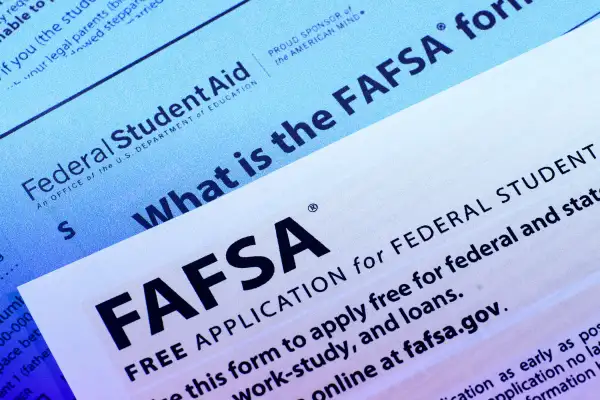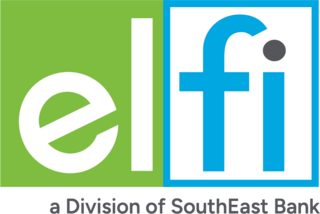Why the FAFSA Isn't Opening in October Like Usual This Year

The start of October typically signifies the beginning of the college financial aid application process. But now — for the second year in a row — that’s not the case.
The FAFSA, or Free Application for Federal Student Aid, will instead formally launch by Dec. 1 to allow the U.S. Education Department to run a testing period before it opens the form to the wider public. Millions of students have to fill out the FAFSA each year to access college grants and loans, and the so-called “phased rollout” is intended to give officials time to identify and work through issues — all in the hopes of avoiding a repeat of last year’s fiasco.
Last week, U.S. Education Secretary Miguel Cardona assured college leaders in a letter that the department had “all hands on deck” to meet its new timeline this year, saying the government is working to release the 2025-26 form following software-industry best practices.
When will the 2025-26 FAFSA come out?
The phased rollout, which includes four beta testing periods, began Tuesday. The first testing group is relatively small, with just hundreds of students tapped to fill out the form. The Education Department selected six college-access community-based organizations that recruited students to fill out the form at in-person completion events.
“Through October and November, we will expand our testing to include tens of thousands of students and many different types of high schools and postsecondary institutions,” Jeremy Singer, the newly appointed FAFSA executive advisor, said in a news release announcing details of the rollout.
The FAFSA will then open to all students “on or before Dec. 1,” the department has said. (The FAFSA typically comes out in the fall ahead of the academic year the form applies to. So the 2024-25 application was released last year, and the 2025-26 application is the primary focus now.)
Higher education groups and financial aid officers so far have had mostly positive responses to the new timeline and testing period for the 2025-26 application, saying that releasing a fully functional form later in the year would be better for students than opening the FAFSA on Oct. 1 and having to deal with months of problems.
“While we wish we could have an earlier FAFSA open date, we support end-to-end testing to ensure the product released on December 1 works for students, families, and schools,” Beth Maglione, interim president and CEO of the National Association of Student Financial Aid Administrators, said in August.
What happened with last year’s FAFSA rollout?
Last year’s form, dubbed “Better FAFSA”, marked the most significant update to the financial aid form in decades. But the release was marred by delays and repeated technical problems that, in the best-case scenarios, caused headaches for families and, in the worst cases, discouraged some students from attending college at all.
All the issues with the 2024-25 application cycle were in the spotlight again last week, when the Government Accountability Office released a scathing report about the rollout and presented it during a congressional hearing.
The Education Department rushed through testing the form last year, leading the department to identify more than 40 separate technical issues after the FAFSA was released publicly, according to the government watchdog. Some issues still hadn’t been fully resolved as of early September 2024, the GAO found, including barriers that continue to complicate the process for students who have a parent or spouse without a Social Security number.
When students tried to get help from the Education Department, they were often unsuccessful. Some 4 million calls, or 74%, were not answered due to understaffing at the call center. And when calls were answered, students often weren’t given clear information about when the FAFSA issues would be resolved, the GAO found.
For its part, the Education Department put out a white paper one day before the GAO report outlining all the ways it has improved the process for this year’s FAFSA release. That includes a clearer timeline, testing periods to ensure the form functions properly when released, improved online resources to help students and parents while they’re filling out the form, and 700 new call center agents to handle call volume.
Given that one of the most common complaints from colleges and families alike last year was poor communication — a problem the GAO also highlighted in its report — the department has also repeatedly stressed it will provide more transparency and clearer communication this year. The department has already started posting updates to a public dashboard, where this week it will begin sharing progress reports from the beta testing.
How to prepare for the 2025-26 FAFSA
Because the four beta testing periods are run through schools and college access groups, individual students and parents cannot sign up to access the form early.
And that’s OK — Shannon Vasconcelos, who works with families filling out the form through her role as senior director of college finance at Bright Horizons College Coach, told Money in August that she’d recommend waiting for the government to identify and resolve major issues first.
"I would let the department work out the kinks in the form before I was anxious to hop on there," she says. "Colleges are not going to set any financial aid deadlines so early that you couldn't complete it on the normal timeline."
Students applying in the early-decision admissions rounds will likely see the most disruption to a typical schedule, since they would normally have financial aid submission deadlines in the fall. Regular-decision applicants shouldn’t see too many deadline changes, assuming the form is fully functional in early December, Vasconcelos said.
Still, because things are in flux, everyone applying to college this year should pay close attention to the financial aid deadlines of individual colleges. Some may have shifted their calendars to account for the new FAFSA timeline.
In the meantime, you can also check whether colleges have any processes for accessing early award estimates; many built those last year after the repeated FAFSA delays. If not, all colleges are required to have a net price calculator that can give you an estimate of your expected price before you fill out the FAFSA.
Finally, students applying to a subset of more than 200 mostly selective colleges have to fill out a second financial aid application called the CSS Profile. That still opened like usual on Tuesday. While the two forms require some of the same information, the CSS Profile is far more in depth, and students shouldn't feel they have to wait for the FAFSA to get started on the profile.
More from Money:
As Student Loan 'On-Ramp' Ends, Missed Payments Will Once Again Hurt Your Credit
An 'Affordable' College Degree Now Means Not Going Into Debt, According to Parents







